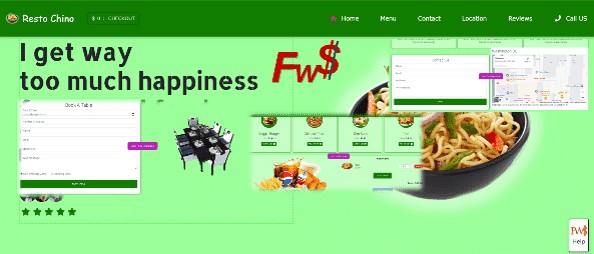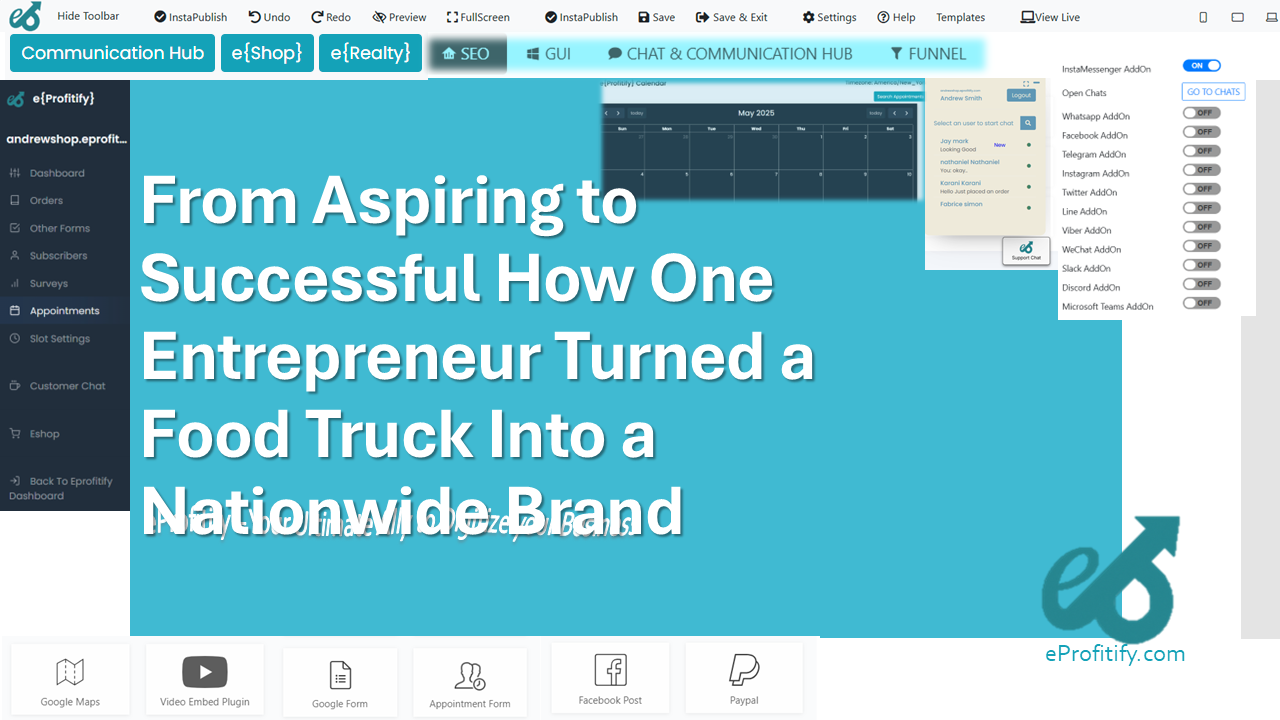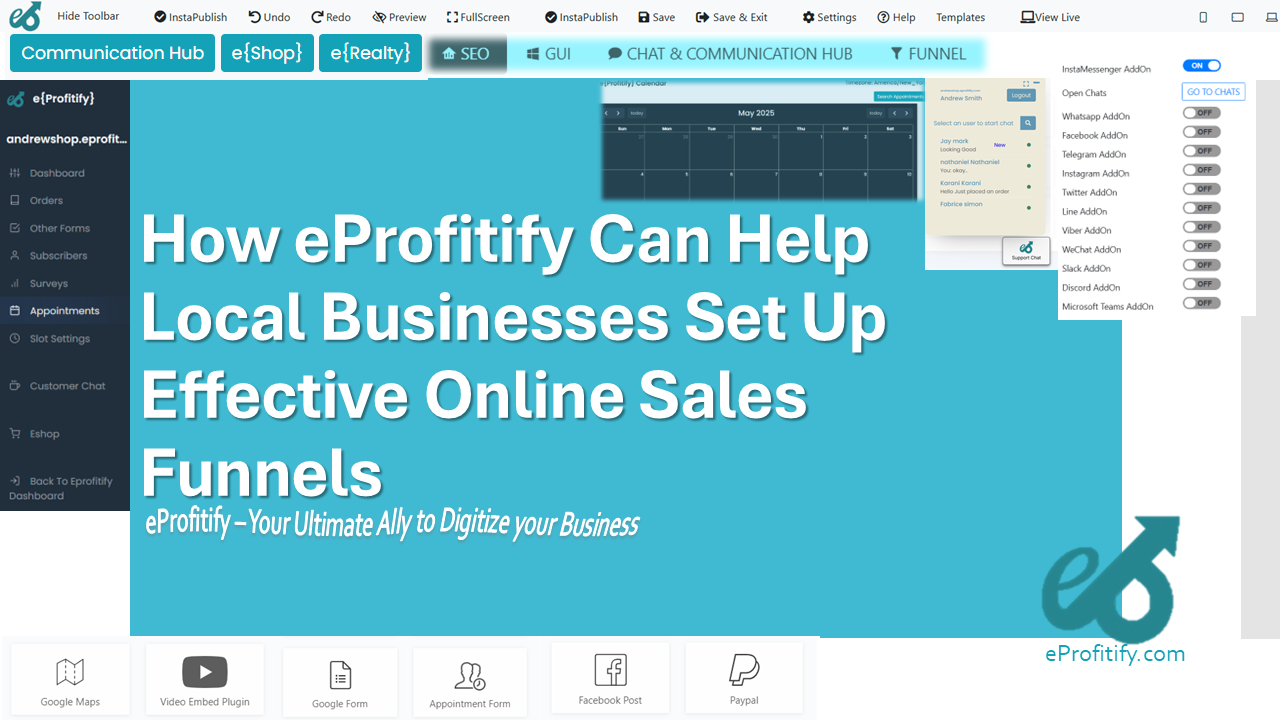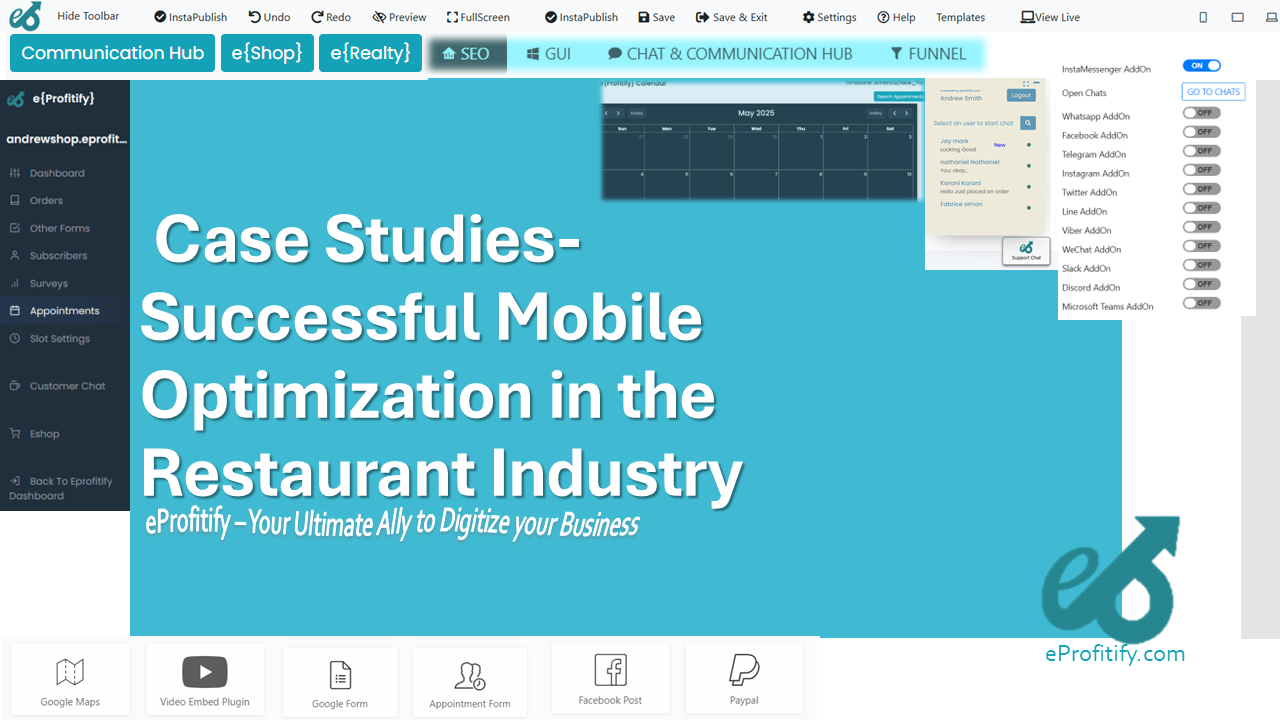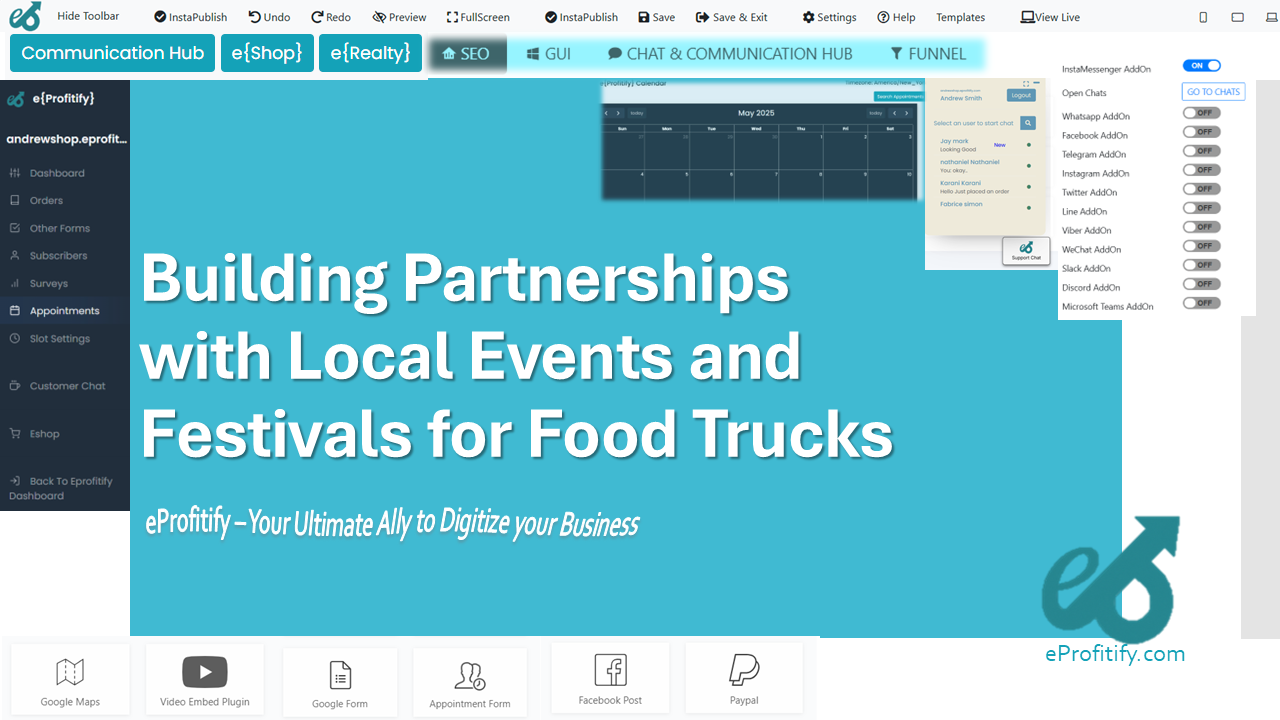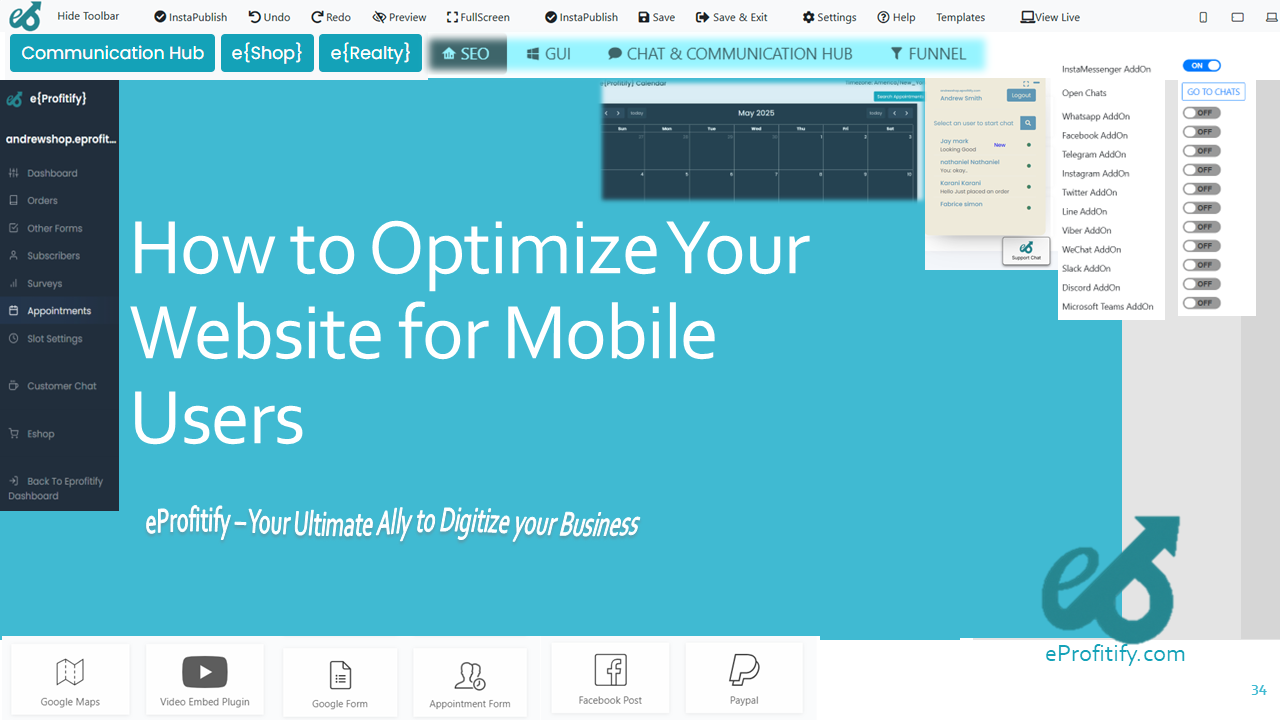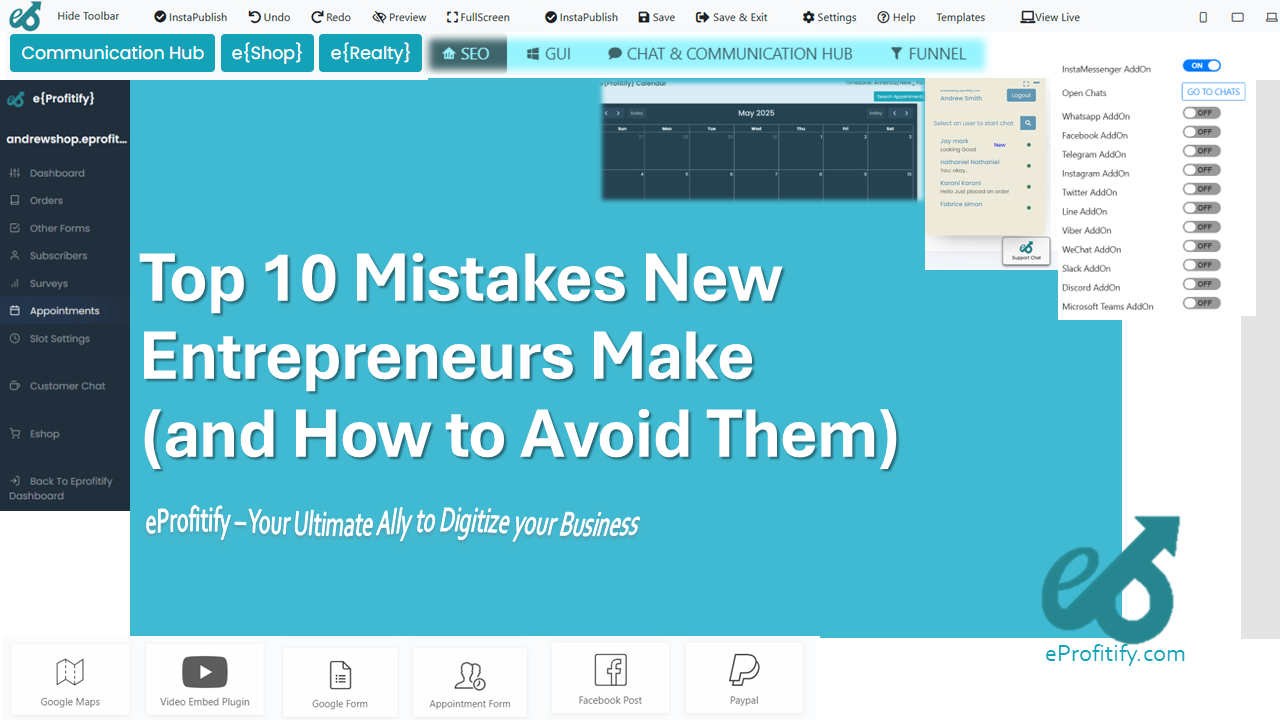How One Food Truck Reduced Operational Costs with Technology and Website Integration
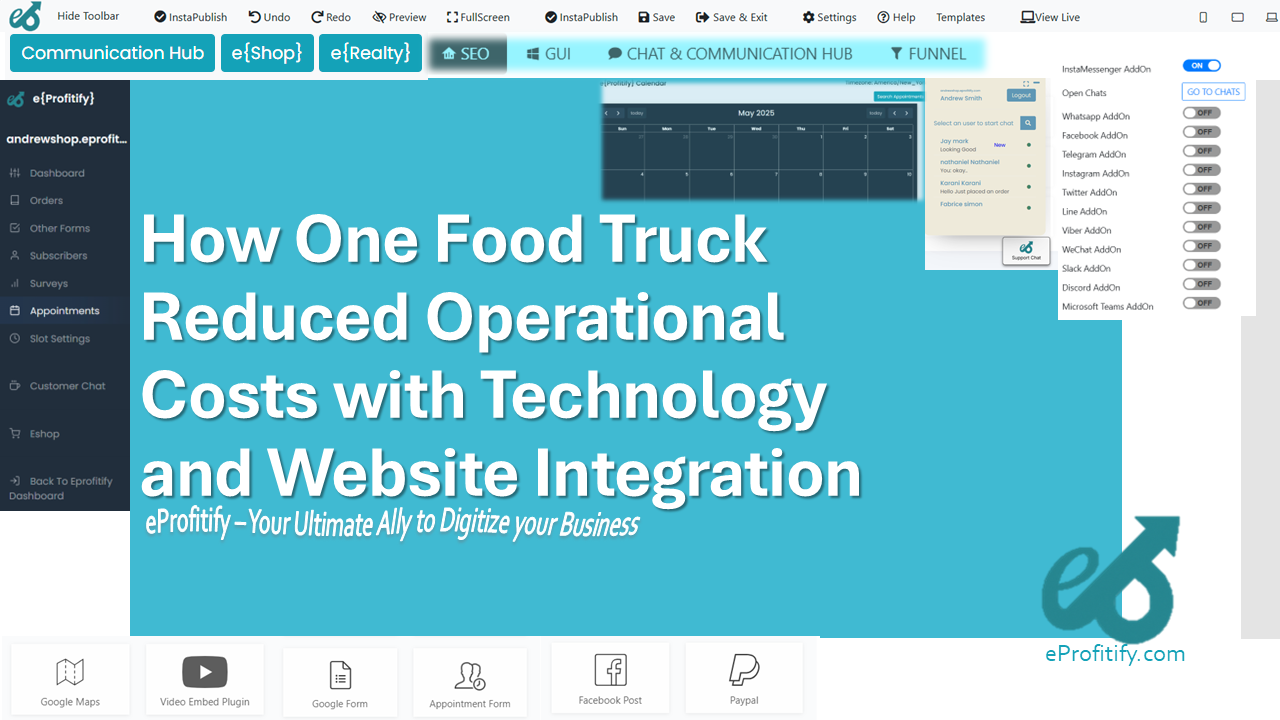
Schedule a LIVE Zoom call with an eProfitify Expert.
How One Food Truck Reduced Operational Costs with Technology and Website Integration
The food truck industry has exploded in popularity over the last decade, with its U.S. market value surpassing $1.2 billion in 2023 and growing at an annual rate of 4.3%. However, soaring operational costs—including labor (30–35% of expenses), ingredients (30%), fuel (10–15%), and permits (5–10%)—threaten profitability. For many small operators, embracing technology has become a lifeline. This case study explores how Tasty Trails, a fictional Austin-based food truck, leveraged digital tools like eProfitify—a leading website publishing and management platform—to slash costs by 25% and boost customer retention.
The Challenge: Balancing Growth and Costs
When Tasty Trails launched in 2020, its gourmet tacos quickly gained a loyal following. But rapid growth exposed inefficiencies: manual order tracking led to errors, last-minute cancellations hurt revenue, and disjointed communication between staff caused delays. Owner Maria Gonzalez faced an all-too-common dilemma: without cutting costs, the business risked joining the 60% of food trucks that fail within their first three years.
The Solution: Integrating eProfitify’s All-in-One Platform
Maria turned to eProfitify, a comprehensive tool designed for small businesses, offering instant messaging, appointment management, ecommerce, CRM, and analytics. Here’s how each feature transformed Tasty Trails:
1. Instant Messaging: Streamlining Team Coordination
Tasty Trails used WhatsApp and paper logs for staff communication, leading to missed orders and scheduling chaos. With eProfitify’s instant messaging, the team accessed real-time updates on inventory, location changes, and order requests in one dashboard. This reduced miscommunication by 40% and saved 10 hours weekly—equivalent to $500/month in labor costs.
2. Appointment Management System: Optimizing Schedules
Pop-up events and catering bookings were plagued by no-shows and double-bookings. The eProfitify appointment system automated reminders and synced with Google Calendar, cutting missed appointments by 30%. Pre-paid deposits for catering orders, enabled by the platform, also secured $2,000 in additional monthly revenue.
3. Ecommerce Integration: Cutting Waste and Wait Times
By adding online ordering via eProfitify’s ecommerce tools, Tasty Trails allowed customers to pre-order meals. This reduced peak-hour wait times by 15 minutes per customer and lowered ingredient waste by 22% through precise demand forecasting. Mobile orders accounted for 35% of sales within three months, aligning with industry trends where online ordering boosts revenue by 18–20%.
4. CRM: Building Loyalty Cost-Effectively
Manual customer tracking made personalized marketing impossible. eProfitify’s CRM analyzed purchase histories to send targeted promotions (e.g., a free drink after five purchases). Repeat customers increased by 27%, and email campaigns achieved a 20% open rate—triple the industry average. Retaining customers cost five times less than acquiring new ones, saving $300/month on marketing.
5. Analytics and Reporting: Data-Driven Decisions
With eProfitify’s analytics, Maria identified top-selling items and sluggish inventory. Switching from beef brisket to pulled jackfruit tacos (which had a 45% profit margin) saved $1,200 monthly. Real-time sales dashboards also optimized routes, reducing fuel costs by 18%.
The Results: A Leaner, More Profitable Operation
After a year with eProfitify, Tasty Trails achieved:
- 25% reduction in annual operational costs ($60,000 saved).
- 35% increase in online orders, driving higher margins.
- 27% growth in customer retention through CRM engagement.
- 200+ hours saved annually via automated workflows.
Why eProfitify Stands Out
While tools like Squarespace and Shopify offer niche solutions, eProfitify distinguishes itself with unified features tailored for mobile businesses:
- Instant messaging reduces internal friction.
- Appointment management secures revenue.
- Ecommerce minimizes waste and wait times.
- CRM nurtures loyalty affordably.
- Analytics empowers strategic pivots.
Maria emphasizes: “eProfitify isn’t just software—it’s a co-pilot for growth. We’re doing more with less, and our customers love the convenience.”
Conclusion: Embracing Tech for Survival and Success
For food trucks, technology isn’t optional—it’s essential. Platforms like eProfitify democratize access to enterprise-grade tools, enabling small businesses to compete with brick-and-mortar rivals. As Tasty Trails proves, smart integration can turn operational headaches into profit drivers.
Call to Action: Ready to trim costs and boost efficiency? Explore eProfitify’s 14-day trial and discover how all-in-one website management can revolutionize your business—no food truck required.
Statistics cited from IBISWorld, U.S. Small Business Administration, and Salesforce studies. Results may vary by business size and industry.
